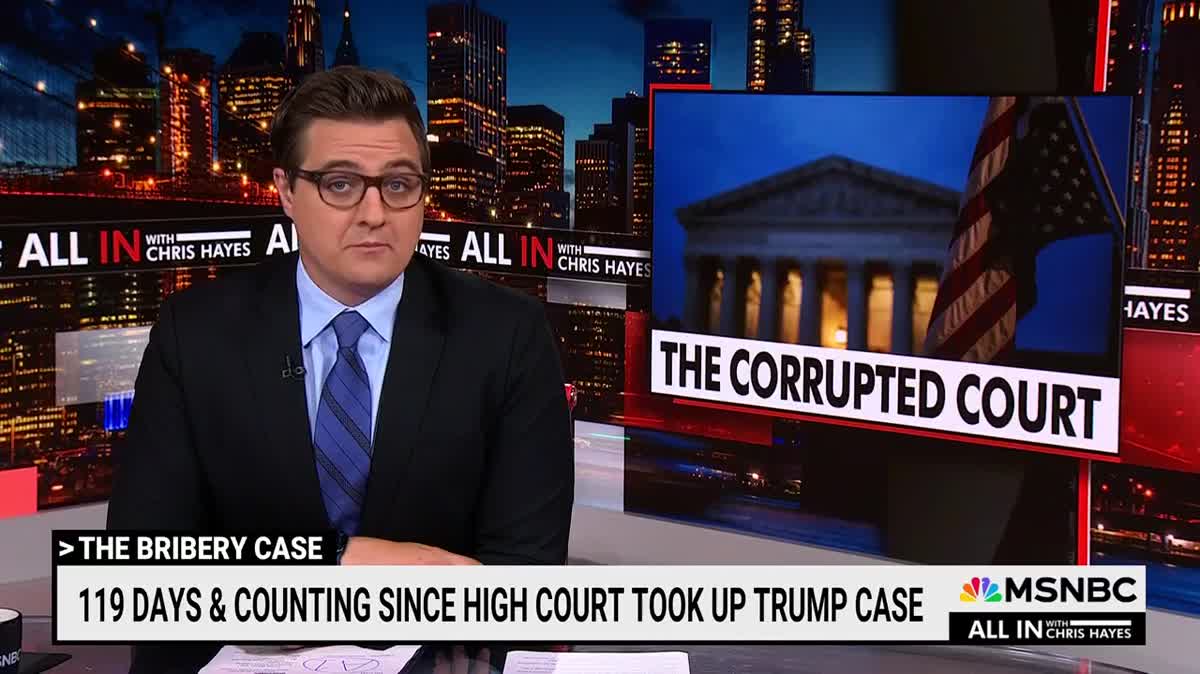Justice Brett Kavanaugh, who wrote the decision, likened the facts behind Wednesday’s SCOTUS decision in the Snyder v. U.S. case to a family tipping their mail carrier or students treating their college professor to a Chipotle’s dinner. But unless the tip or the dinner was worth thousands and given after the mail carrier or professor did a solid to the tune of about a million bucks, the comparison seems ridiculously stretched and convoluted. Or corrupt.
As The New York Times explained, the city of Portage, Indiana, while James Snyder was mayor, purchased five garbage trucks from a company called Great Lakes Peterbilt, for about $1.1 million. A year later, the company gave Snyder a check for $13,000 which he claimed was for consulting services.
More from The Times:
The F.B.I. and federal prosecutors said the bidding process had been manipulated to ensure the company prevailed. Investigators said the money was a gratuity for the garbage truck contracts, but Mr. Snyder said it was payment for his consulting services as a contractor for Peterbilt.
A jury convicted Mr. Snyder of accepting an illegal gratuity, and a federal judge sentenced him to more than a year in prison. On appeal, Mr. Snyder argued that the federal statute criminalized only bribes, not after-the-fact gratuities. A federal appeals court affirmed his conviction, and Mr. Snyder petitioned the Supreme Court to review the case.
On MSNBC, Chris Hayes provided even more disturbing details. Citing the Chicago Tribune, Hayes said that in 2013, when Snyder was mayor, he was in financial trouble. He “showed up unannounced to Great Lakes Peterbilt, the local truck dealership he’d helped to win two city contracts. ‘I need money. that’s what I’m here for,’ the mayor told the owners. Days later, the dealership cut Snyder a check for $13,000 saying it was for consulting that was never fully performed.”
Because Snyder got his dough after Peterbilt got theirs, Kavanaugh’s opinion, affirmed by the rest of the Clarence Thomas/Samuel Alito wing of the court, ruled it A-OK. “The majority explained that the law typically makes a distinction between bribes — payments made or agreed to before a government action to influence the outcome — and gratuities — payments made after a government action to reward or thank the public official,” The Times noted. “In its reasoning, the conservative majority said it relied on statutory history and text, among other factors, to find that the federal statute focused on bribes, not gratuities.”
How fortunate for Justice Thomas! All his Hitler-curious sugardaddy Harlan Crow has to do is wait until after a friendly decision is made to give his SCOTUS bestie another lavish trip or buy and renovate another house for his family and everyone can call it a gratuity! Ditto for Justice Alito who, Hayes pointed out, got a free fishing trip and a hundred grand in free travel on a private jet from megadonor Paul Singer.
But wait, it gets worse. “This court has shown itself both in practice and in theory to be committed to a pro-corruption agenda,” Hayes said. He ran through several other examples where the court made public corruption legal and acceptable:
HAYES: In 2010, the Roberts court limited the scope of federal corruption law in the case of convicted Enron CEO Jeff Skilling. In 2016, it overturned the conviction of a former Virginia, Republican governor Bob McDonell who, along with his wife, accepted nearly $200,000 in gifts, gratuities you might call them, and loans, from local businessmen, including vacations, clothes, Rolex. In 2020 it threw out the convictions of former New Jersey officials and the corrupt Bridgegate scandal after they intentionally caused a massive traffic jam on the George Washington Bridge to punish a political rival
Justice Ketanji Brown Jackson issued a scathing dissent, saying that the ruling relied on an “absurd and atextual reading of the statute” that “only today’s Court could love.”
She’s 100% right, of course. But Hayes ended his commentary with this even more disturbing point: “Considering the six judges went out of their way to bail out a former Republican mayor from a small town in Indiana, what do you think they will be willing to do for the former Republican president of the United States?”

